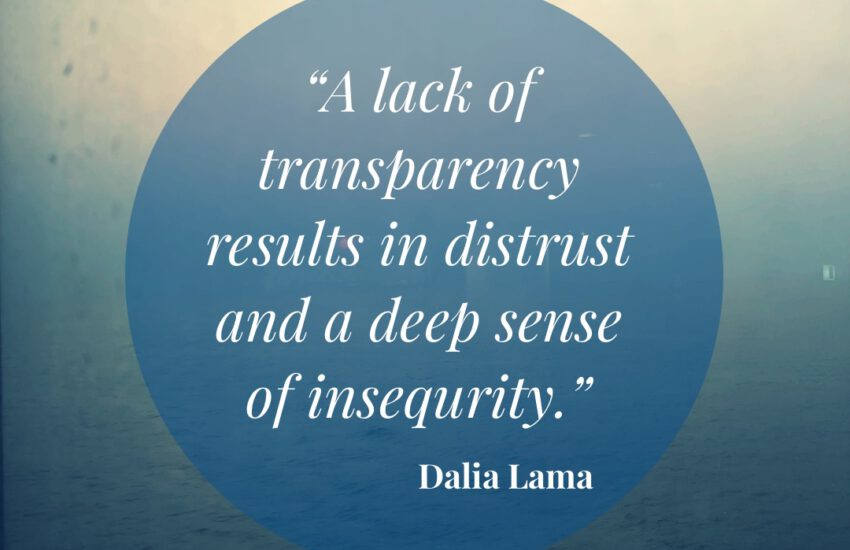Believe more in your people than they believe in themselves
I owe this guiding principle to a friend who pointed out to me that it is not a matter of course to have a lead who believes in you. And she is so right, what I have come to take for granted is not the case for many of us. Knowing that your Lead is behind you and believes in you is incredibly powerful in my opinion and experience.
Looking back, I wasn’t always as self-confident as I am today. I was lucky enough to have a few leads & people passing my way that believed in me and always pushed me further. The reason that I was able to develop the way I did, I owe to many people around me. People who threw me into cold water when I didn’t dare; were there when I needed them, motivated me when I doubted myself, or simply showed me my potential that I couldn’t see myself. We are all our biggest critics and depending on what we have experienced, it can be very difficult for us to believe in our talents or potential. If we then work in an environment that is characterized by competitive thinking or „who is loudest gets ahead“, it becomes even more difficult. What some people have too much – self-confidence (we will come back to this topic in another article), others have too little. But both benefit immeasurably from a lead who believes in them. The friend that I owe this article sent me the following quote.
“The higher you climb, the more your success depends on making other people successful.
Leaders are judged by what their followers achieve.
Leadership is elevating individuals to do more than they thought possible and groups to do more than their members could independently.”
Adam Grant
It’s so true and I would add that by believing in them more than they believe in themselves and showing what they are capable of, you can make them successful. And success can have very different meanings here – more about that in another article.
In our department there was the consideration that our account management teams could take over strategic tasks due to capacity bottlenecks in the strategy team. At the time, my boss asked me what I thought about this and whether I thought our account managers could do it. Everyone who knows me knows that I love this kind of strategic tasks and that I am always at the forefront when it comes to trying something out (just ask my team, who had to serve as guinea pigs many times. But that’s another story). One of my team members helped me with a pitch. I was blown away by her strategic thinking. It was just a feeling at the time – a notion that she would enjoy the new task. No sooner said than done – without her knowledge she was assigned to the new task and she mastered it. With two check-in meetings with the strategy team, she wrote her first creative strategy for a campaign. The campaign was a complete success and only afterwards I told her about our test. I knew that if I had told her about the experiment, it would have put enormous pressure on her and she would have doubted whether she could do it. Because I had simply instructed her and explained to her that we would just start and the strategy team would look up later, she had not questioned it. She was surprised when I told her about it and proud that I had chosen and trusted her to manage it. She took on the task for further projects and you could see her confidence grow. Thanks to her, this task is now in our department and the team loves it.

Another example. One of our youngest team members helped me with an internal project. In conversations with me she was very open but as soon as we had a meeting with other departments about this project she was very reserved and hardly said anything. So I encouraged her by providing a link to a topic she had a lot of ideas about. I pretended I didn’t quite remember what our idea was. I said something like: „That’s what person xy and I were talking about. We had thought that it would make sense to do xy. Person xy I can’t remember the exact idea, can you explain it again?“ At first a bit timidly but then very passionately she presented her idea and arguments. You should have seen the smile on her face when she got the confirmation from everyone that this was a great suggestion. A colleague who knew about it, supported me by encouraging person xy to speak up in the next meeting. A few days later, my team member asked me if I had really forgotten the idea? Damn, I’ll have to work on my acting skills. 😉
But of course, there are not only those team members who are reserved. There are also those who „supposedly“ defy self-confidence and tend to be perceived as very loud or cheeky characters. But exactly these characters are usually also their biggest critics themselves and not always that self-confident. They have only learned to hide this by pushing forward and being loud. To get to these people is not so easy, because they usually have built a big protective wall and might not be that reflected. I had a team member who always put himself in the foreground and didn’t give others a chance to speak. I had already spoken to the person about this behaviour and didn’t get through. You could see that very well in the kind of answers and tone of voice. So I start the conversation this time differently. I told the person that I have a problem and believe that the person can help me to solve it. I wanted the person to help me encourage two people in our team to be more confident and speak up. The person was very surprised that I thought the person could teach the two. It was a trial and it worked very well. The person showed a lot of passion in teaching the others and realized how to be thoughtful of others. Maybe I was just lucky, but it confirmed to me that if you give everyone the right task and believe in them, they see how great it is to achieve something together.
To build them up and encourage them to believe in themselves, that’s what I love the most. We can do this through different things:
- Showing them their potential & their successes: It happens so often that we only focus on the things that didn’t work out so well. That’s why it’s important to keep reminding team members how far they’ve come, what hurdles they’ve overcome, and what they’ve accomplished. Showing them that we know and are proud of them. I just recently came across Google’s #l’mremarkable initiative. The video touched me very emotionally and hits exactly our zeitgeist and my approach. We need to make our teams aware of what they have already achieved and how to talk about it proudly (and without bragging).
- Constructive help: We cannot avoid that there will be setbacks from time to time. But it is up to us to show them how to deal with them and see them as opportunities. Discuss mistakes or setbacks with them and show them that it is not a bad thing and what we can learn from it for the future. Boost their self-confidence by offering constructive help and praise for the things they have done well.
- Praise: If we are honest, we do it far too seldom, even though we ourselves are delighted when we are praised by our boss. Why is that? Praise is a great tool to reinforce behavior and build self-confidence. We should not be afraid that too much praise is harmful. It shows them how attentive we are and how much we appreciate their work.
- Entrusting new projects/tasks: Often we learn that we can do something or how strong we are only when we are forced to do something. You must have at least one situation in mind where you didn’t know what to do or you didn’t think you could do it and then you found your own way and in the end you see that you did it very well. To show that we trust them and have confidence in them, we should entrust them with new projects and tasks. Sometimes the method to push someone into the cold water is suitable. Of course with support but in the background.
Our words and actions as leaders have an enormous impact on how a team member develops and whether they ultimately believe in themselves and recognize their potential. If we can get them to a point where they believe in themselves, they blossom and unlock their full potential. It can happen that a previously shy team member argues a higher-ranking and very self-confident colleague into the ground. If you could see me now, you would see how this still fills me with pride. She was no longer afraid to speak her mind and very much amaze her colleague with her arguments and knowledge. Her knowledge & expertise is her weapon and that is exactly what she had understood at that moment.
For me, there is nothing better than seeing my team members discover their potential and the confidence they gain in themselves with each challenge tackled. Believe in your team members, they will surprise you!

